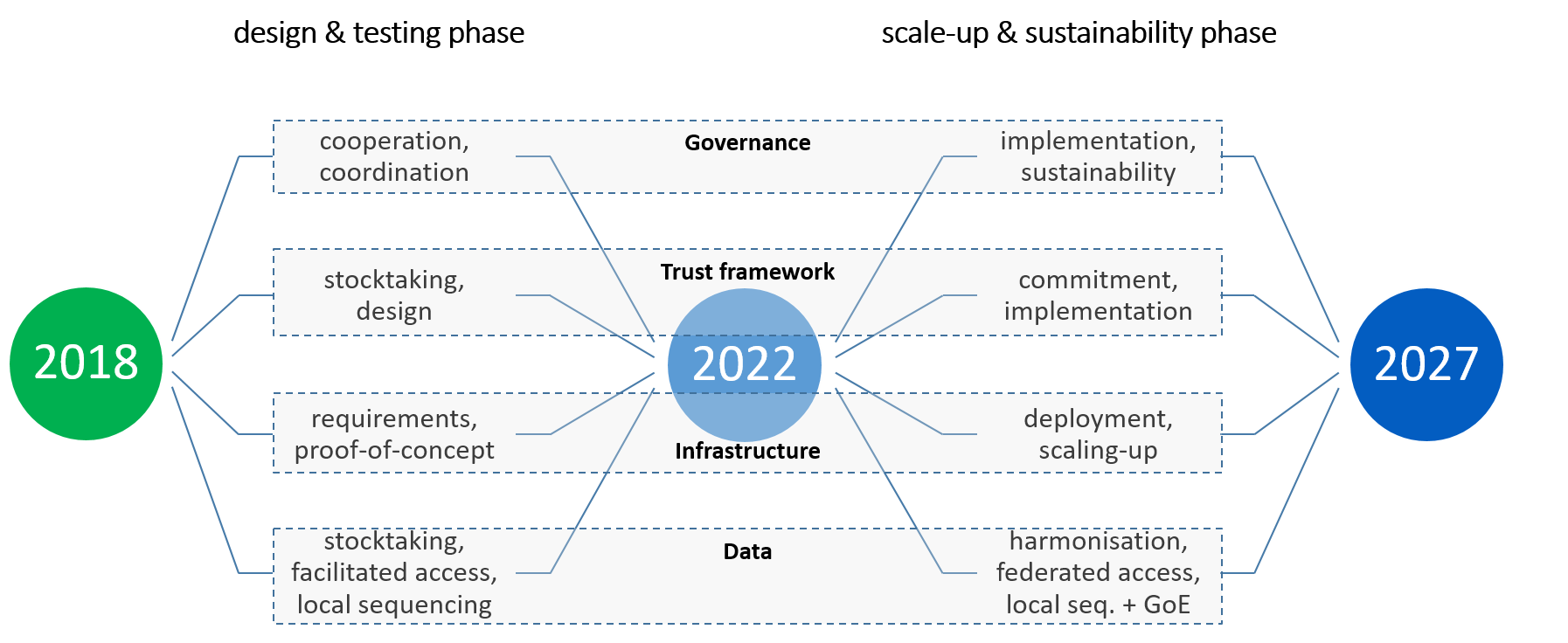To help SMEs recover from the economic impact of the COVID-19 pandemic, Malaysia is working on an integrated plan that provides administrative and financial support, mentoring programmes and comprehensive initiatives.
The effects of the pandemic were not limited to health and social aspects, Rather, it exceeded it to touch the economic aspect, With one-third of the world's population in quarantine for months, its severity varied from country to country. The economy was slowing at the worst rate since the Great Depression.
To confront the pandemic, The Malaysian federal government imposed what it called a "restriction of movement order", which forced non-essential businesses to temporarily close and ban any collective activity, This was manifested by an unprecedented decline in economic activity, In just two weeks, 70% of SMEs experienced a decline in performance and business of nearly 50%. Harm is the greatest due to limited cash flow and reliance on personal interaction with customers, This means long-term effects on the country's economy as a whole. SMEs account for 99% of Malaysian businesses. According to 2018 statistics, it contributes 38.3% of GDP and employs 66.2% of the labor force. But most are behind the digitization race and see it as a complex, unnecessary and costly issue that will not yield profits. The percentage of companies active on the Internet does not exceed 29%. As for companies that practice e-commerce, It represents 5.2%, But during the same year, it witnessed remarkable growth, The use of the Internet to buy basic commodities increased by 144%. With a 61% increase for food purchases and 53% for non-food items.
In the face of this new reality full of difficulties and contradictions, The Malaysian government has alerted to the need to support small and medium enterprises to cross this stage, This is what the Small and Medium Enterprises Cluster of the Ministry of Enterprise Development and Cooperatives does, It is the central entity responsible for implementing development programs and providing advisory services for these companies, which is more than a quarter of a century old, This follows the establishment by the Ministry of International Trade and Industry of a specialized agency to support the development of small and medium industries by securing infrastructure, financial assistance, consulting, easy access to markets and others. It opens its doors to any SMEs in Malaysia, Those interested can apply with a valid license and a viable business plan.
As for the new plan, It is based on 3 pillars, These are inclusivity, digital transformation and changing the paradigm of operations.
To achieve inclusivity, The cluster designed the Inclusive SME Ecosystem Program, Which aims to enable 40% of the income pyramid to access digital tools, By focusing on 3 societal groups, Starting with young people between the ages of 18 and 30, The program provides them with online training to develop practical skills such as marketing, accounting, and others. Then the people of rural communities, to whom the programme pays special attention and provides them with technical, financial and technological guidance and support for the establishment and management of small enterprises. As for the third category, They are women, The program launched the "Women Entrepreneurs Network" initiative, which provides training for women to provide them with management skills and the labor market.
In terms of digitization and changing the paradigm of operations, The program aims to increase the presence of digitization among SMEs, Changing the prevailing belief that digitization is expensive equipment and a misplaced investment. The program is based on a study conducted by the Association of Malaysian Universities, He concluded that digitalization is poised to bring about tangible improvements in corporate performance, In 5 basic aspects, Namely purchases and storage, Then accounting and taxation, Digital marketing, followed by e-commerce, finally, Electronic POS and contactless payment.
To achieve these improvements, The government will provide $88 million from its annual budget in the form of grants and loans to finance digitalization, technology and innovation projects. It also established an electronic portal to help business owners develop, overcome obstacles and communicate with large and multinational companies and joint sector institutions. The program also allowed SMEs to benefit from the 'Shop Online' initiative to encourage this trend.
But these efforts are hampered by fundamental challenges, Most notably, weak cash flows have slowed the digital transformation of 75% of businesses. On the other hand, Poor Internet quality may be a major reason preventing this transformation. During the restraint order, 84% of businesses faced significant difficulties communicating with customers and suppliers online. To approach this challenge, The Ministry of Enterprise Development and Cooperatives has partnered with 237 local tech companies to offer discounts to incentivize SMEs to improve their digital ecosystem.
Within two months, More than 21,000 beneficiaries have subscribed to digital platforms, Among them are more than 6,000 women who have joined a program that encourages them to venture into business. Two thousand other women also received training in online company registration and management.
Digitization of companies improves efficiency and competitiveness and saves time, effort and cost, The portal allows the promotion of products and services to wider segments of potential customers, This is proven by the first six months, The companies that use it have achieved sales of more than $200 million. Companies using social media and those active electronically saw a 26% increase in productivity for the former and 27% for the latter. It is estimated that the programs and initiatives will benefit 500,000 local entrepreneurs.
References:
https://www.smecorp.gov.my/index.php/en/about-sme-corp-malaysia





